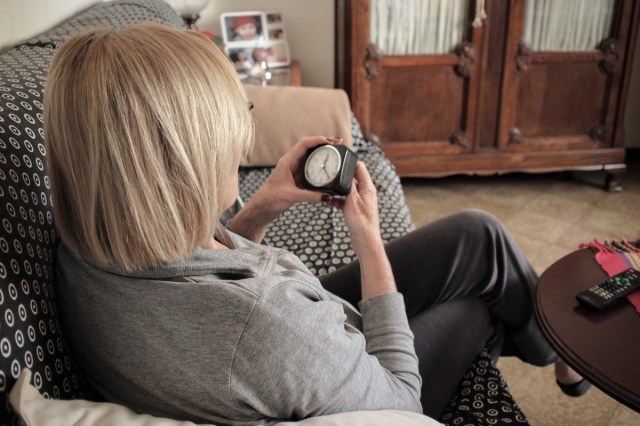Daylight Saving Time Makes You Lose Sleep And Causes A Bunch Of Heart Attacks
It basically exists only to troll your body.

We all know “springing forward” for Daylight Saving Time is awful because we lose that precious hour of sleep on a Saturday night (so, so cruel). Unfortunately for humanity, that’s not the biggest downside of the hour time-shift we experience each spring: it also immediately and significantly ups the heart attack rate.
A paper to be presented at the American College of Cardiology’s 63rd Annual Scientific Session shows that Daylight Saving messes with our bodies’ natural rhythms so thoroughly that there’s a 25% jump in the number of heart attacks the Monday after we change our clocks. Alternately, when we “fall back,” the heart attack rate drops 21% the following Tuesday.
Though the total number of heart attacks the week after Daylight Saving doesn’t change, the increased number on the subsequent Monday morning (when heart attacks are already most common) suggests that people prone to heart problems are negatively affected by the time change.
“Perhaps the reason we see more heart attacks on Monday mornings is a combination of factors, including the stress of starting a new work week and inherent changes in our sleep-wake cycle,” said Dr. Amneet Sandhu, the head researcher on the study from the University of Colorado. “With daylight saving time, all of this is compounded by one less hour of sleep.”
Sandhu hopes that these findings will encourage hospitals to increase their staff the Monday following Daylight Saving, and that it might also force people to re-examine the necessity of time shifts altogether.
Maybe we could just shorten the workday and continuously add hours of sleep? Just, you know, because it’s good for people with heart problems. That’s all I’m saying.
(via Science Daily, image via Nicolò Paternoster)
- It’s supposed to be spring, so here’s an exploding snowman
- And an exploding alarm clock because Daylight Saving is the worst
- Get some extra sleep with this Google Naps parody
Have a tip we should know? [email protected]